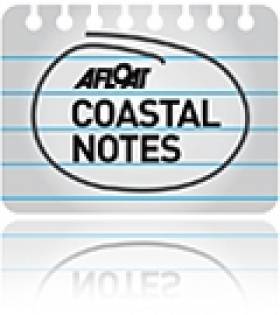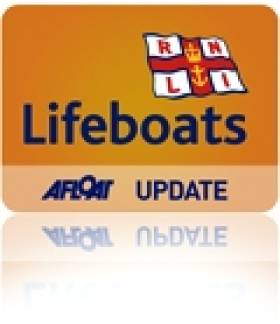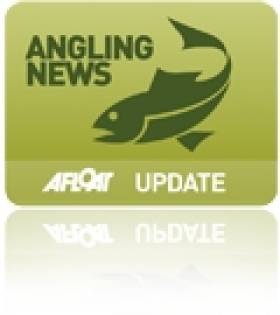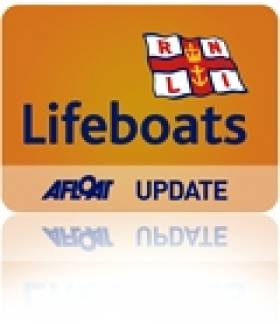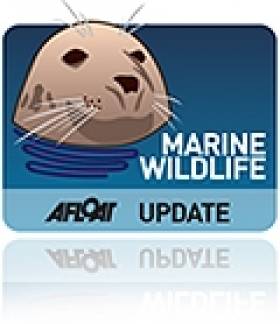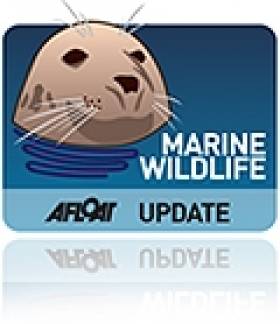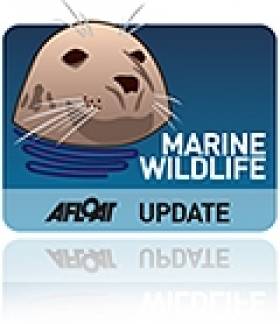Displaying items by tag: Co Cork
Dream Home at Water's Edge on Great Island
#WATERFRONT PROPERTY - A beautifully restored period house on 14 acres of Great Island in Co Cork could be a dream home for any big spender.
Accepting offers over €3 million, the house at East Grove believed to date from the early 19th century and is constructed of stone under a slate roof, with attractive shallow gables.
Approached via a long wooded avenue, the house commands a magnificent position overlooking a peaceful inlet of Cork Harbour.
Accommodation comprises five reception rooms, including a drawing room, dining room and library; six bedrooms including a master bedroom with ensuite; and a fully fitted kitchen with black granite countertops and pantry.
Outside there is a courtyard with stables, a work shop and storerooms, as well as a one-bedroom apartment arranged on two floors, while further accommodation is available in the two-bedroom gate lodge with its own gardens.
Other amenities include a delightful walled garden, an indoor swimming pool, tennis courts and a boathouse with private harbour and boat slipway with a floating yacht pontoon and moorings.
Viewing of East Grove is strictly by appointment only with joint agents Knight Frank and Dominic Daly. More on the property is available HERE.
Meeting for Bantry Bay Fish Farm Opponents Tonight
#COASTAL NOTES - Bantry Bay has reached its capacity for salmon farming, says the committee formed to oppose a proposed new facility at Shot Head.
Save Bantry Bay has called a public meeting for supporters tonight (24 March) at Eccles Hotel in Glengarrif, Co Cork, starting at 8.15pm - where chairman Kieran O'Shea will give a presentation on the group's "wide-ranging objections", as The Fish Site reports.
Minister for the Marine Simon Coveney is currently considering the licence application for Marine Harvet's proposed salmon farm at Shot Head in Adrigole.
Concerns among the committee's members include the potential spoiling of the area's natural beauty having a knock-on effect on tourism, and the environmental consequences of algae blooms from nitrogen and phosphorous waste.
Local fisherman fear that a fish farm of more than 100 acres would see the closing off of part of an "important ground for shrimp and prawn".
Possible infection of wild salmon in local river systems by sea lice from farmed salmon is also an issue, with the Environmental Impact Statement for Shot Head highlighting an outbreak of lice at Marine Harvest's facility in Roancarrig two years ago.
The Fish Site has more on the story HERE.
- Coastal Notes
- Fishing
- Bantry Bay
- Co Cork
- fish farm
- salmon farm
- Shot Head
- Adrigole
- Glengarrif
- Eccles Hotel
- Save Bantry Bay
- Minister for the Marine
- Simon Coveney
- Marine Harvest
- tourism
- environment
- algae blooms
- nitrogen
- phosphorous
- waste
- shrimp
- prawn
- infection
- Wild Salmon
- sea lice
- environmental impact statement
- Roancarrigh
#LIFEBOATS - The latest marine notice from the Department of Transport, Tourism and Sport (DTTAS) advises of construction work being carried out on Baltimore Lifeboat Station from today 5 March.
As previously reported on Afloat.ie, the works are part of a €2.6 million State-funded project to conduct essential remedial works at harbours across West Cork this year.
The works - which will be ongoing till mid-October pending weather conditions - will involve piling immediately adjacent to the foreshore on the north-east side of the building, and the deposition of rock to form an armoured breakwater jutting some 80m into Church Strand Bay.
No forseeable impact to mariners in the area is expected, but vessels are in any case requested to proceed slowly and with caution in the approach channel to Church Strand Bay and to give the works a wide berth to avoid wave-wash.
Further details for mariners are included in Marine Notice No 9 of 2012, a PDF of which is available to read and download HERE.
'Eagle-Eyed' Angler Fishes Wedding Ring from the Lee
#ANGLING - An "eagle-eyed" angler in Co Cork received a free eye test after his remarkable find of a wedding ring in the water last week.
Seventy-five-year-old Pat O'Flaherty spotted the €400 gold band - complete with its red box - in the River Lee, garnering him a front-page story in the Irish Examiner and a free eye test from Specsavers.
They put me in the chair and did all the tests and told me I have 20:20 vision," he said.
The owner of the ring has yet to be traced, despite much speculation as to how it ended up in the Lee in the first place. If unclaimed, O'Flaherty intends to auction the ring for charity.
In other angling news, West Cork's Courtmacsherry Angling Centre hosted members of the Bradford Sea Angling Club in the UK last weekend.
Poor weather meant that the group was restricted to inshore fishing on the Friday and Saturday, but the Sunday saw a catch of ling up to 23lbs as well as pollack, coalfish, cod, haddock and whiting.
Marine Notice on Pipeline Survey in Celtic Sea
#NEWS UPDATE - The latest Marine Notice from the Department of Transport, Tourism and Sport (DTTAS) advises on a pipeline survey in the Celtic Sea next month.
PSE Kinsale Energy Limited will be commencing the survey of the 24" Gas Export Pipeline on 6 March 2012 using the Marine Institute vessel RV Celtic Voyager (call sign EIQN). The survey is expected to last 1 to 2 days, depending on weather conditions.
The survey will take place along the existing pipeline route in the Celtic Sea, between the shoreline at Inch Beach in Co Cork and gas platform 'Alpha'.
The RV Celtic Voyager will display appropriate lights and signals, and will be towing side scan sonar with cables of up to 200m long. A Radio Navigation Warning will be issued via the Irish Coast Guard (schedule Bravo, four times a day) prior to the vessel's arrival at the survey area. The vessel will also keep a listening watch on VHF Channel 16.
All vessels, particularly those engaged in fishing, are requested to give the RV Celtic Voyager and her towed equipment a wide berth and keep a sharp lookout in the relevant areas.
Further details for seafarers, including relevant co-ordinates, are included in Marine Notice No 7 of 2012, a PDF of which is available to read and download HERE.
Marine Notice on Construction in Castletownbere Harbour
#IRISH HARBOURS - The latest Marine Notice from the Department of Transport, Tourism and Sport (DTTAS) advises on construction works at Castletownbere Fishery Harbour Centre in Co Cork this week.
The works involve the installation of four steel piles - two in the navigation channel to the inner harbour and two to the west of Dinish Pier.
The works are being advanced by civil engineering crews working from a jack-up barge, which will display the relevant day signals and navigation lights in accordance with collision regulations.
For safety reasons, mariners are requested to proceed slowly and with caution in the approach channel to the Fishery Harbour Centre and to give the works a wide berth. Wave-wash from vessels should also be avoided.
These works are expected to be on-going until mid-December, weather permitting.
Complete details for shipowners, ship operations, shipmasters and seafarers are included in Marine Notice No 57 of 2011, a PDF of which is available to read and download HERE.
Ballycotton Lifeboat Launched to Assist Ailing Fishing Vessel
#LIFEBOATS - Ballycotton's RNLI lifeboat was dispatched in poor conditions Wednesday evening to fishing boat taking on water some 20 miles south east of the Co Cork town, FishNewsEU.com reports.
Assisted by the Waterford coastguard helicopter Rescue 117, the lifeboat stood by the Irish-registered fishing vessel as its four-man crew kept the water intake under control and headed towards Ballycotton harbour under its own power.
Once returned to port, an RNLI salvage pump was placed aboard the boat to extract the excess water, and the crew offered thanks to the emergency services for their assistance.
First Sighting of a Dolphin in an Irish Lake
#MARINE WILDLIFE - The first recorded sighting of a dolphin in an Irish lake has been reported by the Irish Whale and Dolphin Group (IWDG), according to The Irish Times.
The dolphin was spotted in Lough Hyne, a saltwater lake near Baltimore in Co Cork by Skibbereen-based kayaking instructor Jim Kennedy, who filmed it over a number of days.
"To the best of my knowledge, and I’m open to correction, this is the first validated record of a cetacean using an Irish lake," said the IWDG's Pádraig Whooley.
Though there have been no further sightings since then, there is nothing to indicate that the dolphin has yet left the lough for the open sea.
As previously reported on Afloat.ie, Lough Hyne was also recently visited by a 13-metre fin whale that was sadly found beached in stormy conditions on the Sligo coast this week.
The Irish Times has more on the story HERE.
Whale Carcass Battered by Strong Sea Gales in Sligo
#MARINE WILDLIFE - The Irish Independent reports on the carcass of a whale that was strewn on a beach in Co Sligo after it was swept into rocks by Monday's gale-force winds.
The 13-metre fin whale had been seen recently on a number of occasions in Lough Hyne, a saltwater lake near Baltimore in Co Cork.
On Monday it was spotted at Raughley in the north of Sligo, where it was found beached by Jimmy and Viera Stupakova after the treacherous conditions of the early part of this week.
The find marks the fifth recorded stranding of the species in Irish waters, and the first validated record of a fin whale in Co Sligo, according to OutdoorCommunity.ie.
It is not yet clear how the juvenile met its end, though initial investigations point to the whale not being long dead.
The Irish Independent has more on the story, including video, HERE.
Places Available on IWDG Whale Watch Weekends
The Irish Whale and Dolphin Group (IWDG) is offering a limited number of places to non-members on its two upcoming autumn/winter whale-watching weekends in Co Cork.
The weekends, based at the Celtic Ross Hotel in Rosscarbery, are geared towards sightings of larger marine wildlife – specifically fin and humpback whales, which are commonly sighted in West Cork between October and December.
Two weekends are scheduled, on 28-30 Octover and 25-27 November, and both will include presentations as well as plenty of whale-watching opportunities on land and at sea.
The IWDG has also negotiated a special weekend rate of €120 at the Celtic Ross Hotel which includes two nights' B&B, an evening meal and a packed lunch.
The weekends are being booked in succession, both limited to 12 bookings, with seven places currently remaining for the first weekend. The IWDG warns that the trips are not suited to anyone in poor health or prone to sea-sickness, and that as always whale spottings cannot be guaranteed.
Anyone interested in attending or wishing to enquire further can contact Pádraig Whooley at [email protected] or 023 8838761, or write to the IWDG, Dereen, Rossmore, Clonakilty, Co Cork.




























